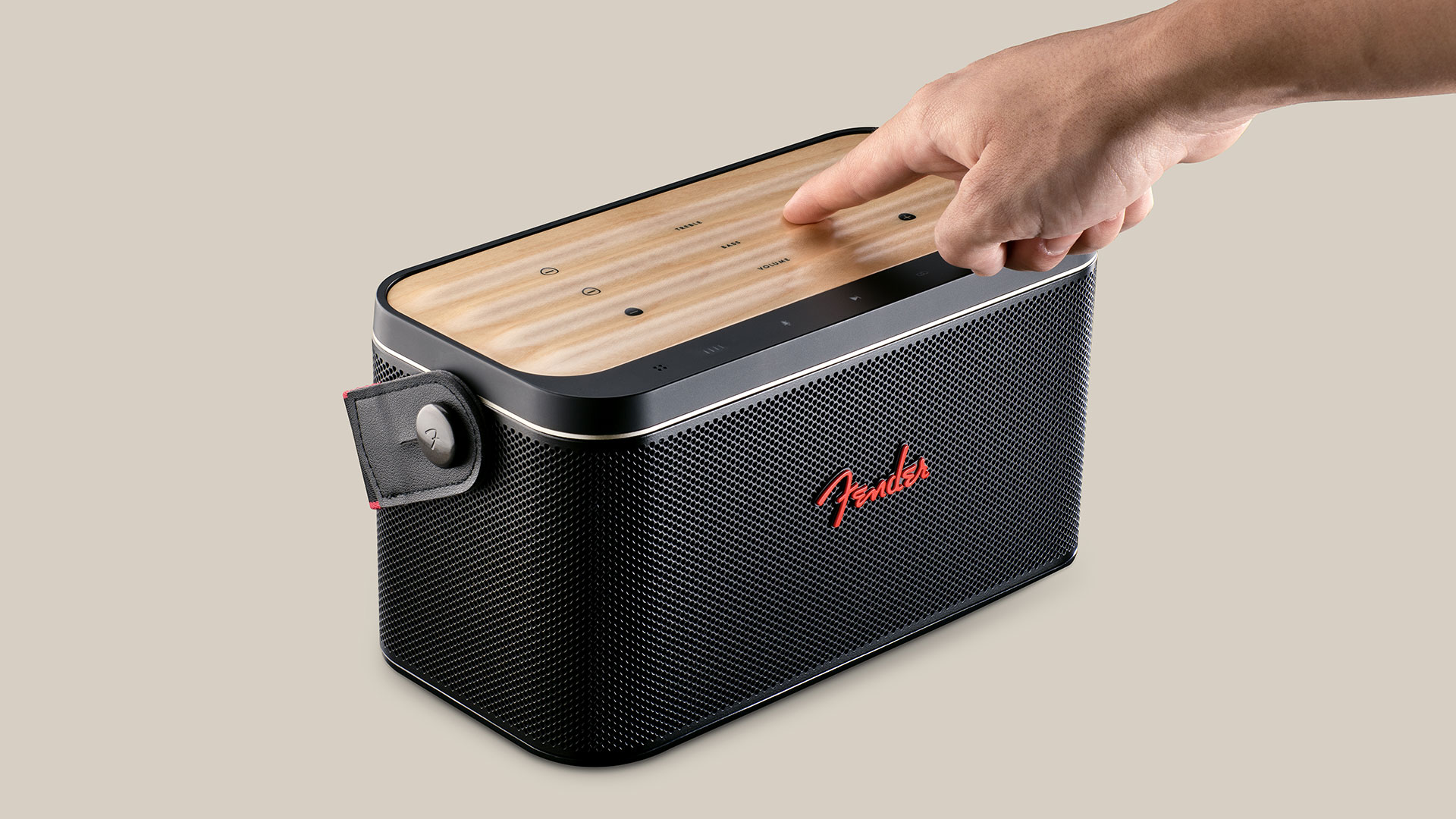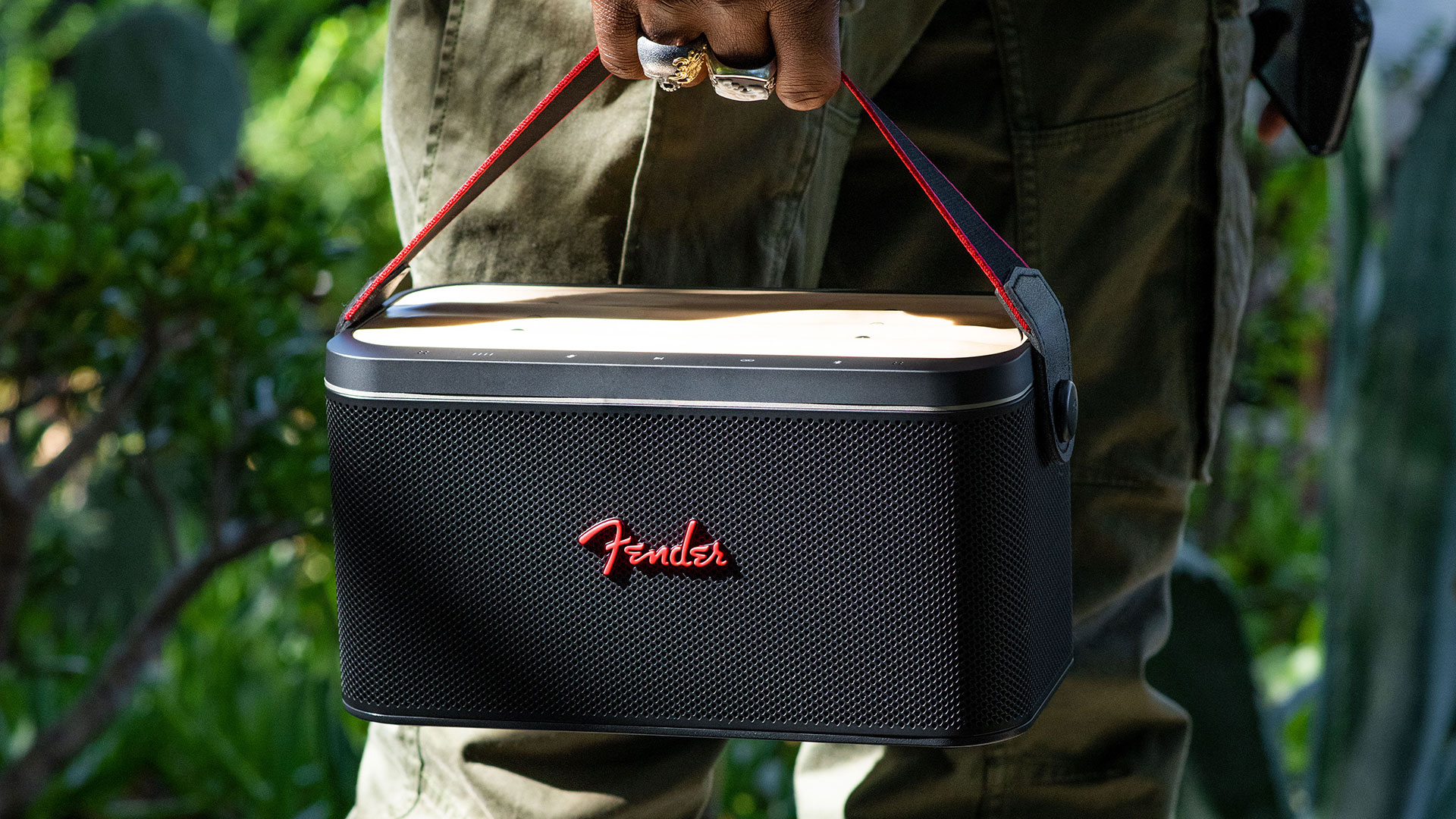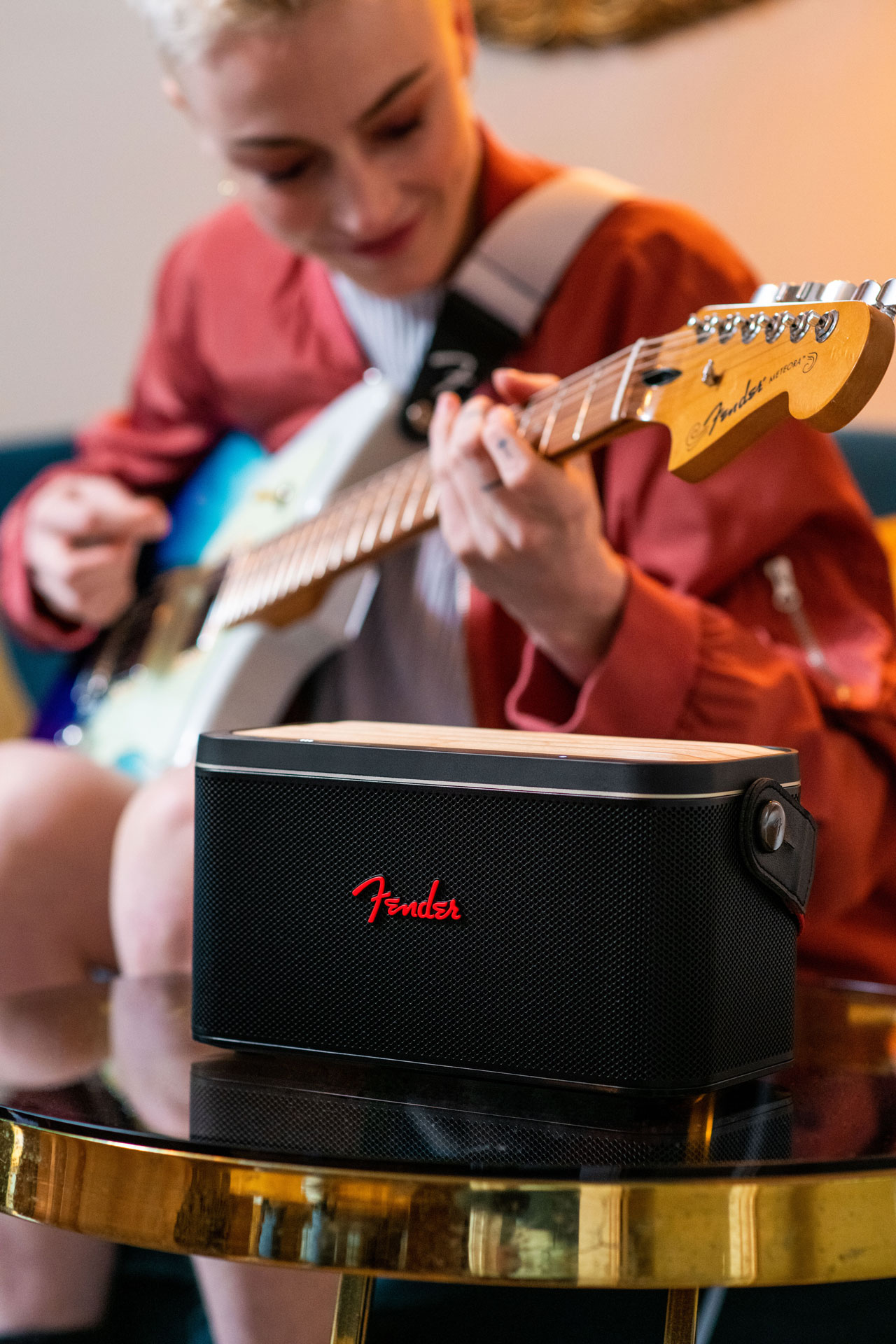NAMM 2023: Fender Audio unveils the RIFF – a portable Bluetooth speaker and practice amp with a maple wood touch control panel
The stylish new hybrid speaker and amp aims to corner the music listening market among guitar players

NAMM 2023: Fender’s main guitar brands may be eschewing NAMM this year, but its home audio wing is in attendance and has debuted the RIFF – a portable Bluetooth music speaker that can also function as a guitar amp.
The 60-watt, Class-D speaker incorporates four speakers and two bass radiators into a box that measures less than 12” x 8”. It uses USB-C charging and a lithium-ion battery to produce up to 26 hours of battery life and has inputs for guitar and a 1/8” aux cable.
The RIFF is notable for being the first of Fender Audio’s home listening devices that also works as an amp, given the previously announced Newport and Indio speakers were for playback only.

As such, there’s a nice nod to the firm’s guitar-making roots in the form of a top panel that is made of maple and offers touch control for volume, bass and treble in the form of three grooved touch control slider zones.
On the tech side, there are more control options available via the new RIFF partner app, which offers an alternative control for the EQ and volume and allows you to tweak the guitar/music mix when practicing.

There’s little else in the way of guitar tone controls, but Fender Audio mentions that the RIFF can be paired with the firm’s popular Mustang Micro headphone amp, which offers various amp and effects emulations.
In addition, there’s some clever stuff under the hood on the playback front, including auto-tone room correction. We assume this functions in a similar way to Apple’s Homepod tech, using its built-in microphones and speakers to read the room and bias the speaker output, accordingly – though unlike Apple’s speakers it seems to require the app to calibrate, rather than doing it automatically. You can also create a stereo pair, and there’s a party mode enabling the connection of up to 100 speakers.
Get The Pick Newsletter
All the latest guitar news, interviews, lessons, reviews, deals and more, direct to your inbox!
Finally, alongside the impressive battery life, there are more nods to portability in the form of a carry strap and water-resistance – handy if you’re looking for an outdoor jam, or a good quality speaker for barbecues, tail-gating, camping etc.
It’s hard to say at this point how the RIFF will fare in the eyes of guitarists. On the surface, it’s certainly tooled more towards music listening than playing, but the option of a built-in practice amp is always a welcome bonus for players.
The prospect of pairing it with the excellent Mustang Micro is also an appealing offering and indicates how Fender Audio is considering its integration with the Fender mothership.
However, the RIFF carries a list price of $469. If you throw in a $119 Mustang Micro, that’s a spend of nearly $600 for a home audio/practice solution, albeit one with a powerful 60-watt speaker.

Compare that to something like the (non-portable) 40-watt Positive Grid Spark 40, which retails around $299 – which has an enormous amount of modeling and practice tech packed in and still functions as a Bluetooth speaker – then it becomes a tougher sell. Even more so stacked against the portable Spark Mini at $199, though that only offers 10-watt power and an eight-hour battery.
For the guitarist who spends a lot more time listening than playing, or the Fender fan, the RIFF could be a great option, though – particularly if it can set itself apart on the listening front.
The RIFF is available now and is priced at $469. For more information, head to Fender Audio.

Matt is Deputy Editor for GuitarWorld.com. Before that he spent 10 years as a freelance music journalist, interviewing artists for the likes of Total Guitar, Guitarist, Guitar World, MusicRadar, NME.com, DJ Mag and Electronic Sound. In 2020, he launched CreativeMoney.co.uk, which aims to share the ideas that make creative lifestyles more sustainable. He plays guitar, but should not be allowed near your delay pedals.
“The guitar is the instrument of the people”: The IGF Summer School celebrates 30 years of levelling up guitar players with a bumper Bath event
These are the gear trends that will shape your guitar buying in 2025: we explored every inch of NAMM to discover what brands are plotting for the next 12 months – and how the guitar gear world at large is changing









